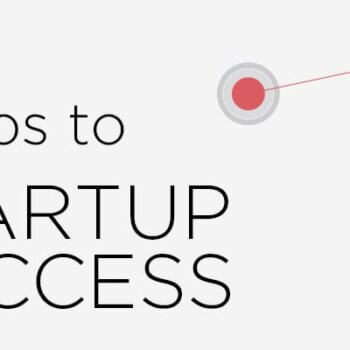You have a revolutionary new gadget, and you’re about to unleash it on the marketplace. It’s going to be the next iPhone or Fitbit.
Lawyer up first, says PK Toh, associate management professor at Texas McCombs.
In today’s tech world, having good attorneys is as important as having good inventions, he says. “Litigation goes hand in hand with innovation. Having the ability to litigate is crucial to a firm’s expansion.”
In new research, Toh finds what happens when companies can’t litigate. When they lose their primary law firms, their innovation drops off. They debut fewer products using new technologies until they have new lawyers on board.
“If I lose my law firm, I’m going to pause on venturing into new domains until I rebuild my litigation abilities.” — PK Toh
Protecting Intellectual Property
High-tech companies need high-powered attorneys because their businesses are built on patents and trade secrets. “Intellectual property is everything,” says Toh. “Once you lose the technology, you lose the entire business.”
In recent years, he says, intellectual property suits have increased because more firms are luring inventors away from rivals. In 2018, Uber settled for $245 million with the self-driving car company Waymo. The ride-hailing company had hired a former Waymo employee, who was alleged to have stolen proprietary sensor designs.
But a law firm handles much more than lawsuits, Toh adds. It files new patents and assesses the monetary value of existing ones. It gives advice on how to avoid getting sued.
Because legal services are largely intangible, it’s hard to measure their direct effects on innovation. What can be measured, says Toh, is the effect of their sudden absence. When a company’s law firm goes out of business, it takes time to replace it. Does the new technology pipeline slow down in the meantime?
Losing your Lawyers
With colleagues Martin Ganco of the University of Wisconsin-Madison and Cameron Miller of
Syracuse University, Toh found 11 intellectual property law firms that went out of business between 2002 and 2010 and looked at 57 companies that had them as clients.
For each company, the researchers tallied up patents and patent lawsuits. They sorted patents into 132 technological classes recognized by the U.S. Patent and Trademark Office. For each year, they counted how many new classes a company entered. Lastly, they compared those businesses with others in the same industries.
They found that in the year after losing their primary law firms, companies suffered sharp drops in both legal activity and innovation:
· They launched 56% fewer intellectual property lawsuits than comparable companies.
· They filed for 30% fewer overall patents.
· Their patent applications in new technology classes fell even more: 56%.
The domains they were least likely to enter were those with the highest concentrations of lawsuits, like wearable technologies and internet-enabled appliances.
“If I know I’m going to be sued, I need my litigation abilities even more.” — PK Toh
The good news for such companies was that lawsuits and patents rebounded after one year. According to intellectual property attorneys the researchers interviewed, that’s the time it typically takes a new firm to get up to speed.
“It takes a while to get to know what patents are in your portfolio, your overall strategy, and what new areas you should pursue,” Toh says.
For him, the results confirm that before a company expands into new technologies, it needs to beef up its legal muscle. “It’s insurance against losing what you invest in these areas,” he says. “Think of it as another tool in your pocket.”
From Gadgets to Groceries
Although Toh’s study focuses on high-tech, he believes its lessons apply far beyond. “It used to be easy to separate the technological and nontechnological worlds,” he says. “Not anymore.”
He points to a traditionally low-tech business: groceries. Technological innovations are sweeping through everything from organizing supply chains to selling online. That means more intellectual property to protect — and, ultimately, more lawyers.
“Whatever industry you’re in, they’re all being revolutionized by technology,” Toh says. “It’s good news for law firms.”
About the Author
This submitted article was produced by Texas Mcombs, a business blog that shares the business and public policy knowledge created at The University of Texas with the world. see more.





























